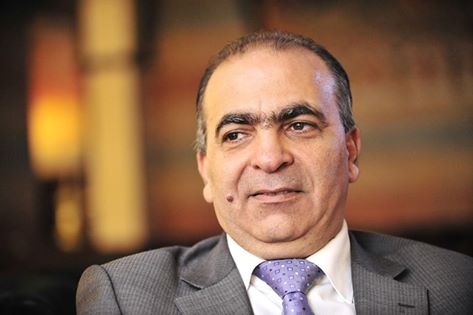The recent statement by British Foreign Secretary Boris Johnson that Syria's reconstruction would only begin after Syrian President Bashar al-Assad's departure has been repeated more than once by a number of Western officials. In other words, the West and wealthy Arab states would participate in rebuilding Syria, but only after ensuring Assad is not in control of the country's decision-making mechanism.
Western analysts believe that the Russians and Iranians may be able to prevent Assad's fall through the intervention of their forces on the ground and in the air, but they will be unable to stabilize Syria without its reconstruction.
The volume of the destruction to housing and infrastructure exceeds the capacity of the two countries supporting Assad, which are already exhausted by the fragility of their own economies and backwardness.
International institutions estimate the cost of Syria's reconstruction at around $200 billion. Most experts claim that more than 1 million homes have been completely or partially destroyed and are no longer habitable. Water, electricity and health services have been badly affected. There are some cities in the countryside of Damascus and Homs, as well as the city of Deir-ez-Zor, where the level of destruction is greater than 70 percent. Any return of refugees and displaced people to their homes requires quick and costly work for the restoration and reconstruction.
In light of all this, talk of viable political solutions will not be realistic without an international plan to finance a relatively rapid reconstruction process in Syria, which requires strong Arab and international funding and support.
When Western leaders state that they will not put Assad's departure as a condition for any political solution, it is because they do not wish to see the collapse of Syria's institutions before the political transition. But it should never be interpreted that they support the survival of Assad, his family or his mafia state. U.S. Secretary of State Rex Tillerson summed up when he said: "We do think it's important that Assad's departure is done in an orderly way."
The big picture of the situation in Syria – to me – is as follows: First, any possibility of Syria falling into the hands of takfiri Islamist groups should be eliminated. Therefore, the war on these organizations and their defeat should be the first and foremost goal of the international community. Any attempt to hinder this goal will extend the tragedy and suffering of our people and will prolong the survival of Assad.
Second, the possibility that the Assad family will continue to rule Syria until after the transition period is not a possibility, as there is sufficient evidence to condemn him as a war criminal, while international institutions will not begin financing the reconstruction of Syria until Assad's dominance over the regime's security and economic apparatuses is relinquished.
Third, the return of refugees and the prevention of their continued flow to Europe requires a speedy reconstruction, and the assurance that Assad's security services will not arrest and torture them and their families, as has been the case for more than 50,000 young Syrians.
Syria cannot become a stable and viable place without an international reconstruction project and an international force to ensure security in a transitional period, a period during which Syrians will vote on a constitution to govern their lives and elect an administration that will reflect their will and run their country.
This article was translated and edited by The Syrian Observer. Responsibility for the information and views set out in this article lies entirely with the author.


